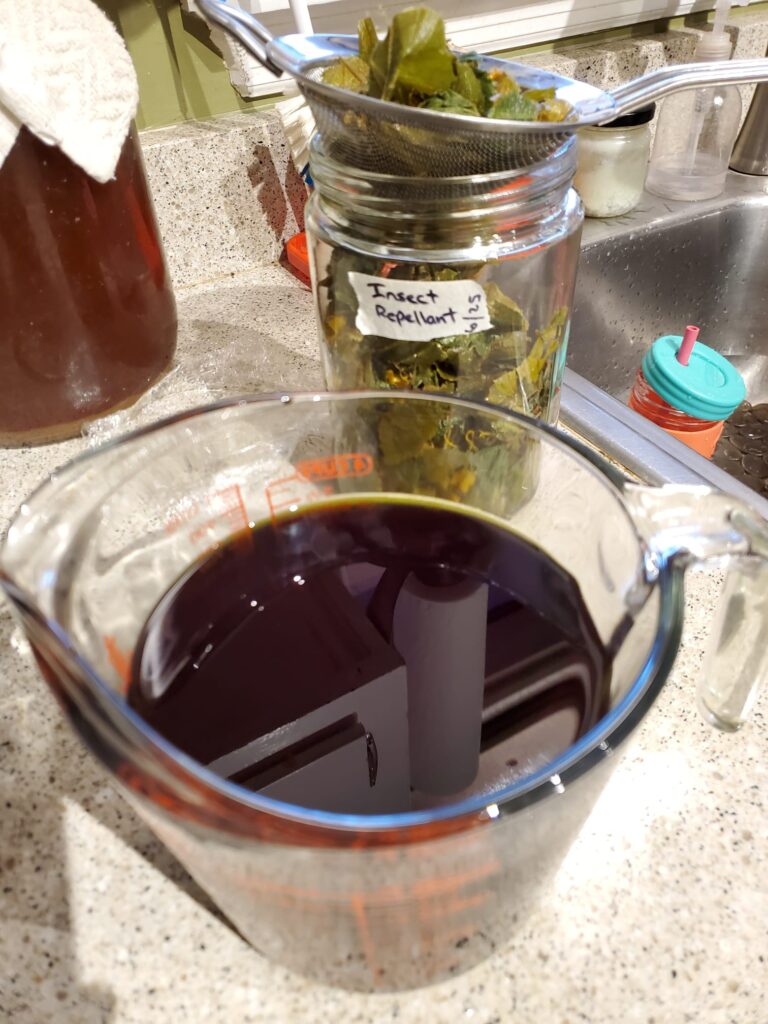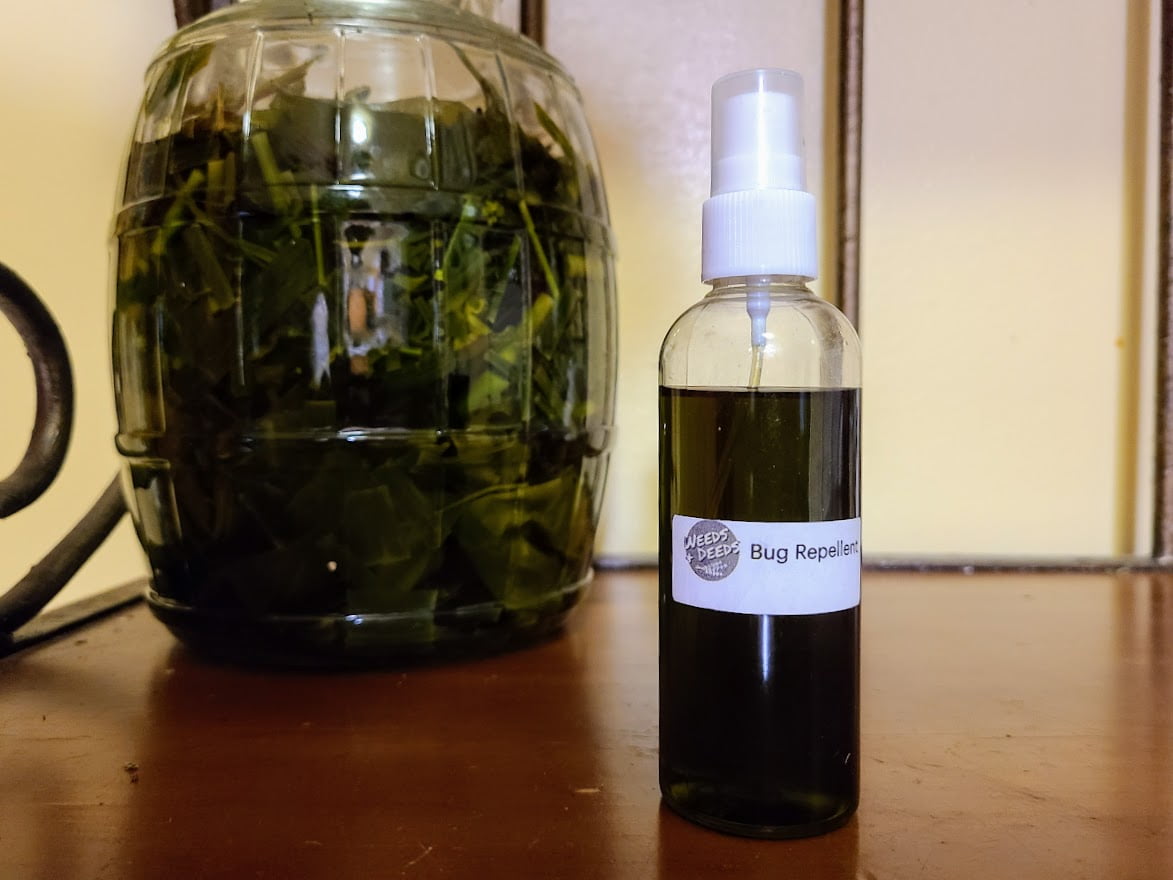Ingredients
- 1 ½ cup beautyberry leaves (chopped)
- 2 cups catnip
- ½ cup dog fennel (chopped)
- ½ cup lemon balm
- ½ cup lemongrass (chopped)
- 10-15 drops of neem oil
- 10-15 drops of lemongrass essential oil (optional)
- 32 oz of rubbing alcohol (or witch hazel)
Instructions for making

- Wash and dry herbs.
- Chop herbs to better fit in the jar and to release more of the leaves’ oils.
- Place herbs in an adequately sized jar to fit the contents and be submerged in the alcohol.
- Pour in the alcohol. If you have too much you can add more alcohol. Just make sure everything is submerged to prevent plants from developing fungus.
- Leave for 2-3 weeks in a dark place.
- After the resting period, strain out the plant material with cheesecloth or something similar. The leftover leaves should crunch to the touch.
- Add lemongrass essential oil and the neem oil to the liquid.
- Transfer the mixture to spray bottle(s).
Instructions for use
**Always start with a patch test if possible. Spray on a little bit and let it sit for at least 24 hours. This can give you any indication of a potential skin allergy to any of the ingredients. **
Spray on the skin as needed!
Beneficial Herbs
Beautyberry (Callicarpa americana): Beautyberry has a long history of use as an insect repellent that dates back to the Native American tribes of our areas, who gifted us with the knowledge.
The most active compounds—the ones that make beautyberry such an effective natural bug repellent—are volatile, terpenoid compounds (callicarpenal and intermedeol) that tend to evaporate as the leaves dry out. So fresh leaves are most effective.
Catnip (Nepeta cataria): Catnip’s essential oil (called nepetalactone) has been found to be 10 times more potent than standard insect repellents (which generally use Diethyl-m-toluamide better known as DEET) in fighting off mosquitoes.
Dog fennel (Eupatorium capillifolium): One suggested use for dog fennel is as a “strewing herb” to control insects. It has been used particularly to help control fleas and ticks. Insect repellent chemicals (alkaloids) have been isolated from this plant.
Lemon Balm (Melissa officinalis): Lemon balm is said to repel mosquitoes and gnats. It contains high levels of a compound called citronellal, which gives it its lemony aroma and flavor that bugs find so unpleasant.
Lemongrass (Cymbopogon citratus): Citronella, the essential oil from Lemongrass is also known for repelling insects.
Alternative Herbs
In addition to the herbs listed above, you can use the following as substitutes or additions, depending on what you have available:
- Basil
- Citronella
- Lavender
- Marigold flowers
- Mint
- Rosemary

